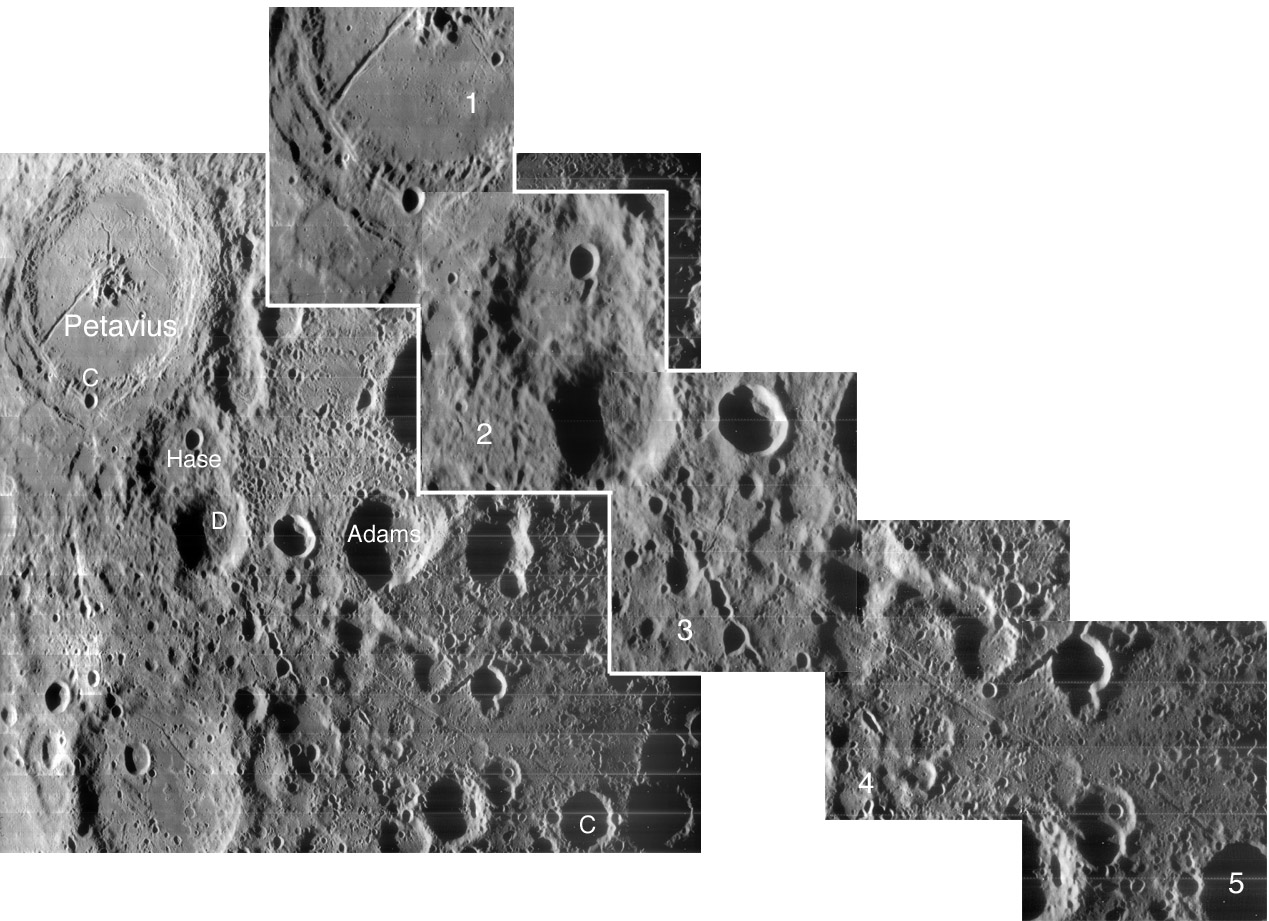
LO IV-184-H2 image from USGS Lunar Digitization Project
The western rim of Petavius is one of the most peculiar features on the lunar surface. The rim crest is separated by a flat zone from the lower part of the rim that drops to the crater floor, and a narrow bright edged rille (insert 1) cuts through the rim, and is cut by the fresh crater Petavius C. I had never noticed until today that the rille faintly runs across a flat area (insert 2) and then crosses the western floor of Hase and then Hase D. Just south of Hase D the rille becomes somewhat wider and turns slightly to the east (insert 3) and become the Hase Rille. The rille continues to the southeast (insert 4), and finally makes an abrupt jump north of Marinus C (insert 5). I don’t understand how the normal-looking Hase Rille changes into the strange rille that crosses Hase and goes onto Petavius. And how is that little rille related to the large Petavius Rille that slices across the floor to the central peaks? I feel really good about noticing this rille to rille connection, but I wish I understood why its there!
Technical Details:
Notice the cluster of secondary craters just east of Hase and Hase D, and the secondary crater chain in inset 3.
Related Links:
Rükl charts 59 & 69
Another view of Hase
COMMENTS?
Click on this icon File:PostIcon.jpg at the upper right to post a comment.



